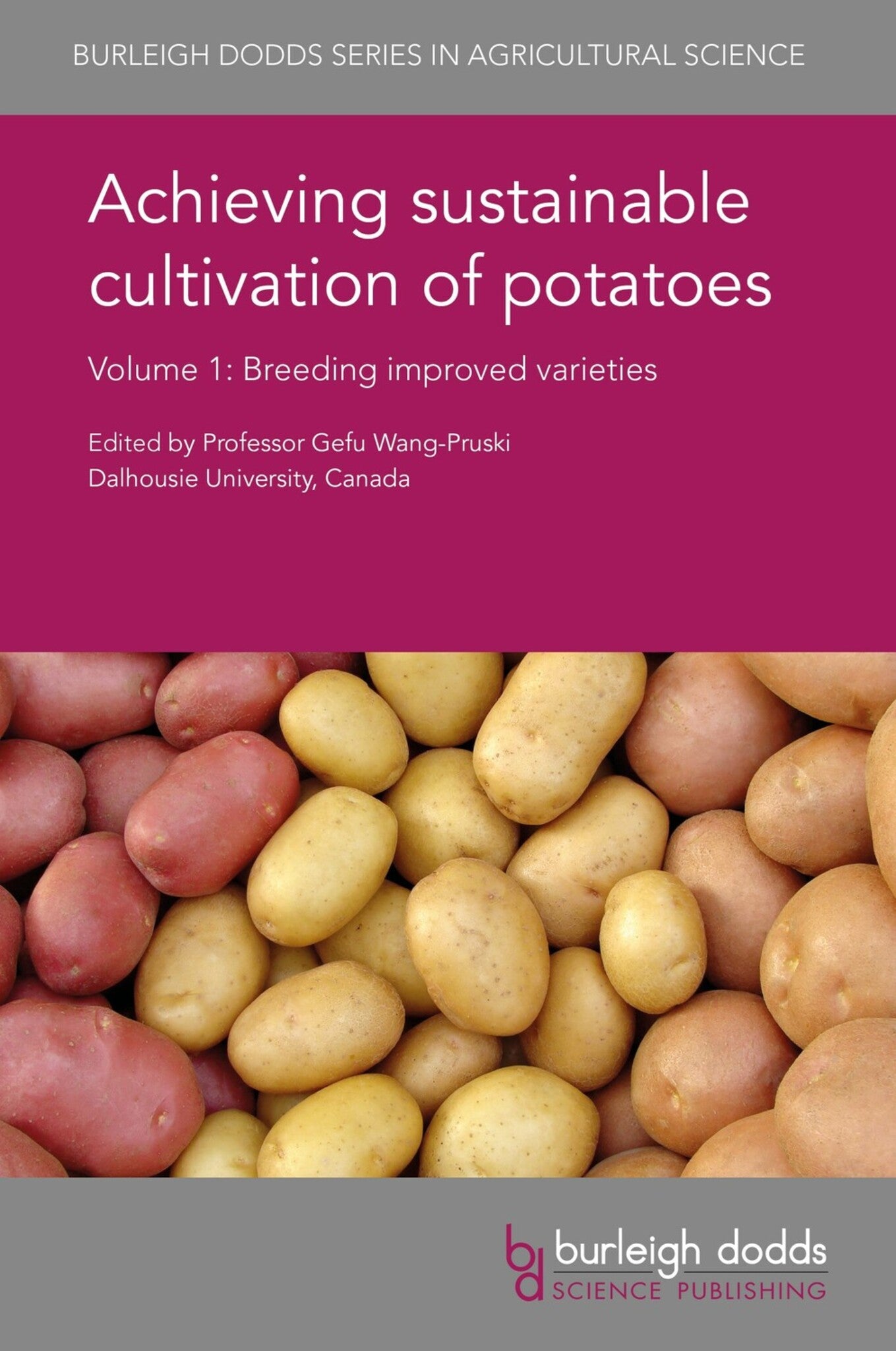We're sorry. An error has occurred
Please cancel or retry.
Achieving sustainable cultivation of potatoes Volume 1

Some error occured while loading the Quick View. Please close the Quick View and try reloading the page.
Couldn't load pickup availability
- Format:
-
09 August 2018

- Reviews latest research on understanding potato plant physiology and genetic variety
- Discusses major advances in conventional and hybrid breeding as well as their application in improved varieties
- Focuses on ways of supporting smallholders in key regions such as Africa

TECHNOLOGY & ENGINEERING / Agriculture / Sustainable Agriculture, Agronomy and crop production, TECHNOLOGY & ENGINEERING / Agriculture / Agronomy / Crop Science, Botany and plant sciences, Sustainable agriculture, Organic farming

Part 1 Plant physiology and breeding
1.Advances in understanding potato plant physiology and growth: Curtis M. Frederick, University of Wisconsin, USA; Masahiko Mori, Obihiro University of Agriculture and Veterinary Medicine, Japan; and Paul C. Bethke, USDA-ARS and University of Wisconsin, USA;
2.Understanding ageing processes in seed potatoes: Paul C. Struik, Wageningen University & Research, The Netherlands;
3.Ensuring the genetic diversity of potatoes: John Bamberg and Shelley Jansky, USDA-ARS, USA; Alfonso del Rio, University of Wisconsin-Madison, USA; and Dave Ellis, International Potato Center (CIP), Peru;
4.Advances in conventional potato-breeding techniques: Jai Gopal, ICAR-Central Potato Research Institute, India;
5.Hybrid potato breeding for improved varieties: Pim Lindhout, Michiel de Vries, Menno ter Maat, Su Ying, Marcela Viquez-Zamora and Sjaak van Heusden, Solynta, The Netherlands;
Part 2 Improving particular traits
6.Advances in development of potato varieties resistant to abiotic stress: Ankush Prashar and Filipe de Jesus Colwell, Newcastle University, UK; and Csaba Hornyik and Glenn J. Bryan, The James Hutton Institute, UK;
7.Developing early-maturing, stress-resistant potato varieties: Prashant G. Kawar, ICAR-Directorate of Floricultural Research, India; Hemant B. Kardile, Raja S., Som Dutt, Raj Kumar Goyal, Vinay Bhardwaj, B. P. Singh, P. M. Govindakrishnan and S. K. Chakrabarti, ICAR-Central Potato Research Institute, India; and P. Manivel, ICAR-Directorate of Medicinal & Aromatic Plants Research, India;
8.Developing new sweet potato varieties with improved performance: Peng Zhang, Weijuan Fan, Hongxia Wang, Yinliang Wu and Wenzhi Zhou, Institute of Plant Physiology and Ecology, Chinese Academy of Sciences, China; and Jun Yang, Shanghai Chenshan Plant Science Research Center, Shanghai Chenshan Botanical Garden, China;
9.Nutritional properties and enhancement/bio-fortification of potatoes: Duroy A. Navarre, Washington State University and USDA-ARS, USA; and M. Moehninsi, Sen Lin and Hanjo Hellmann, Washington State University, USA;
10.Improving the breeding, cultivation and use of sweetpotato in Africa: Putri Ernawati Abidin and Edward Ewing Carey, International Potato Center (CIP), Ghana;
Part 3 Translating research into practice: improving cultivation in the developing world
11.Potato production and breeding in China: Liping Jin, Chinese Academy of Agricultural Sciences, China;
12.Improving potato cultivation to promote food self-sufficiency in Africa: Moses Nyongesa and Nancy Ng’ang’a, Kenya Agricultural and Livestock Research Organization, Kenya;
13.Supporting smallholder women farmers in potato cultivation: Linley Chiwona-Karltun, Swedish University of Agricultural Sciences, Sweden; Maryanne Wamahiu, Stockholm University, Sweden; Chikondi Chabvuta, Actionaid International, Malawi; Dianah Ngonyama, Association of African Agricultural Professionals in the Diaspora, USA; and Paul Demo, International Potato Center (CIP), Malawi;



